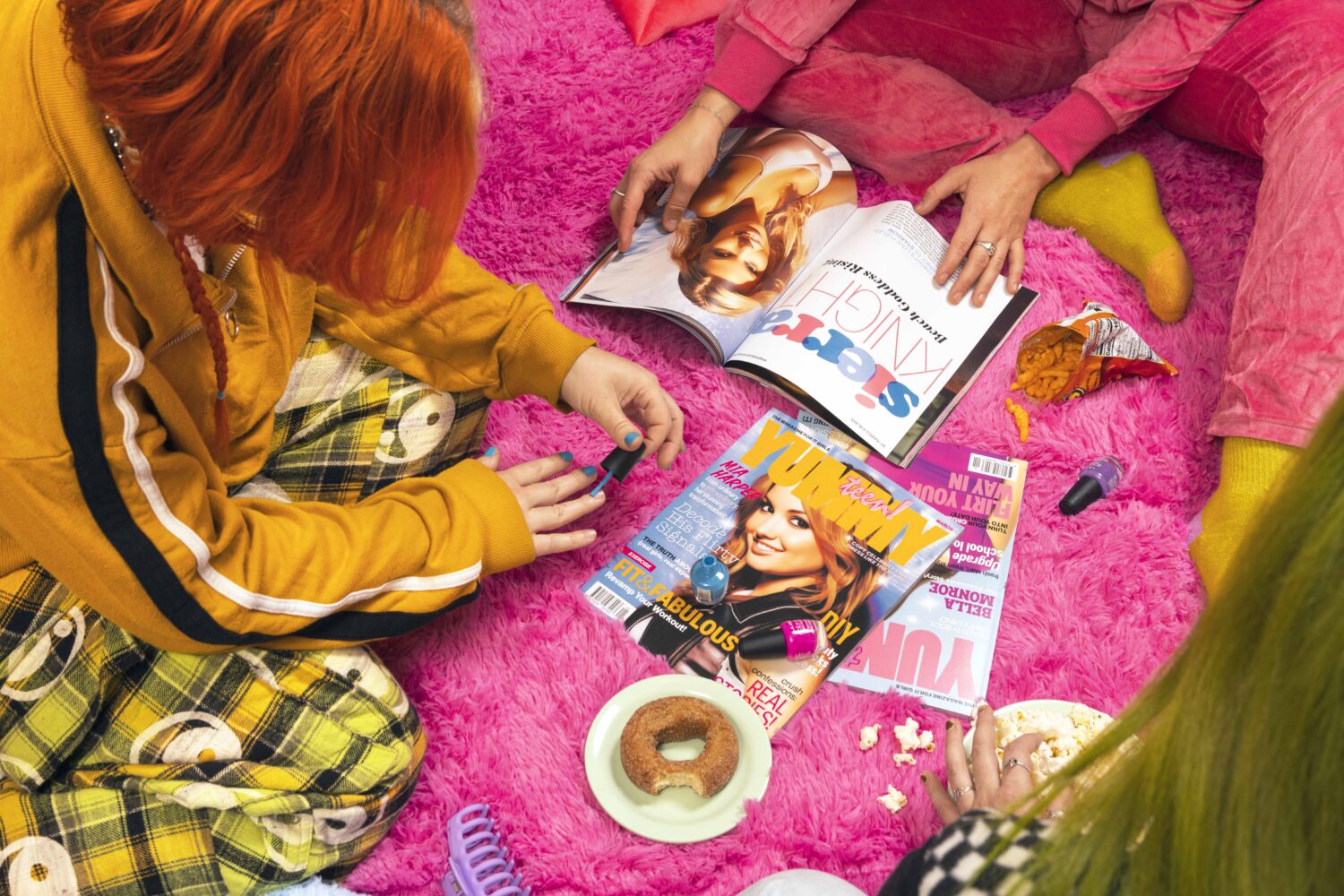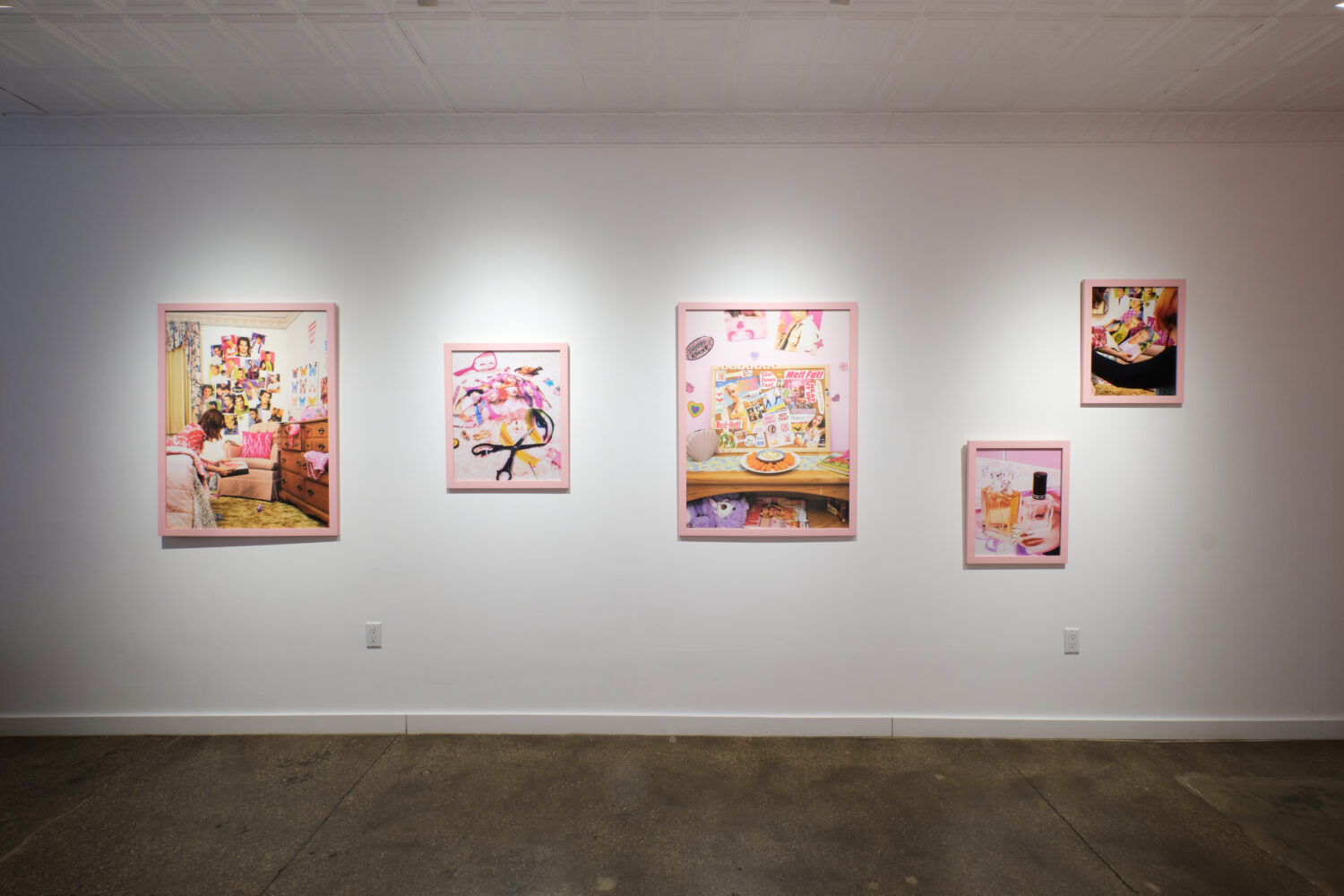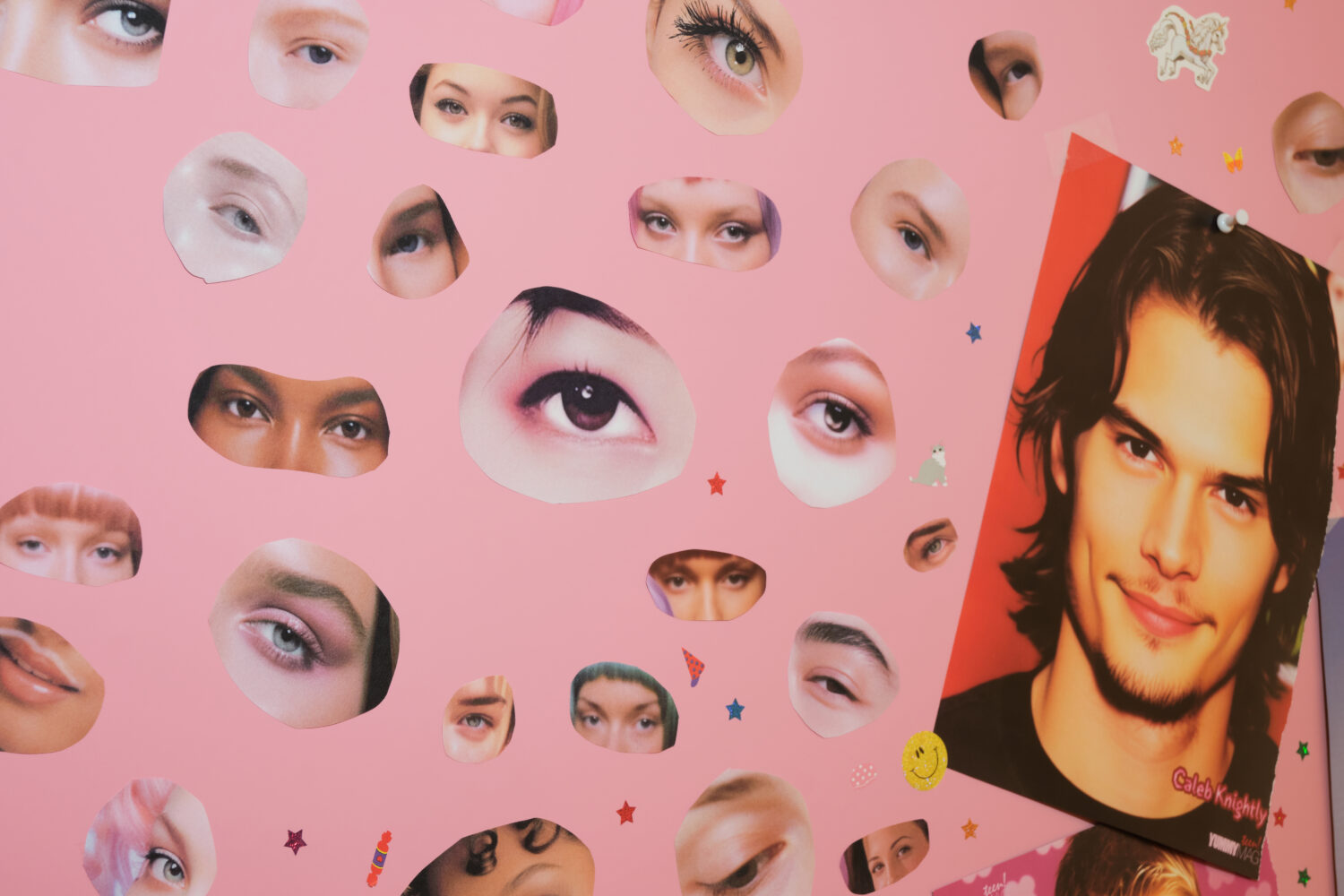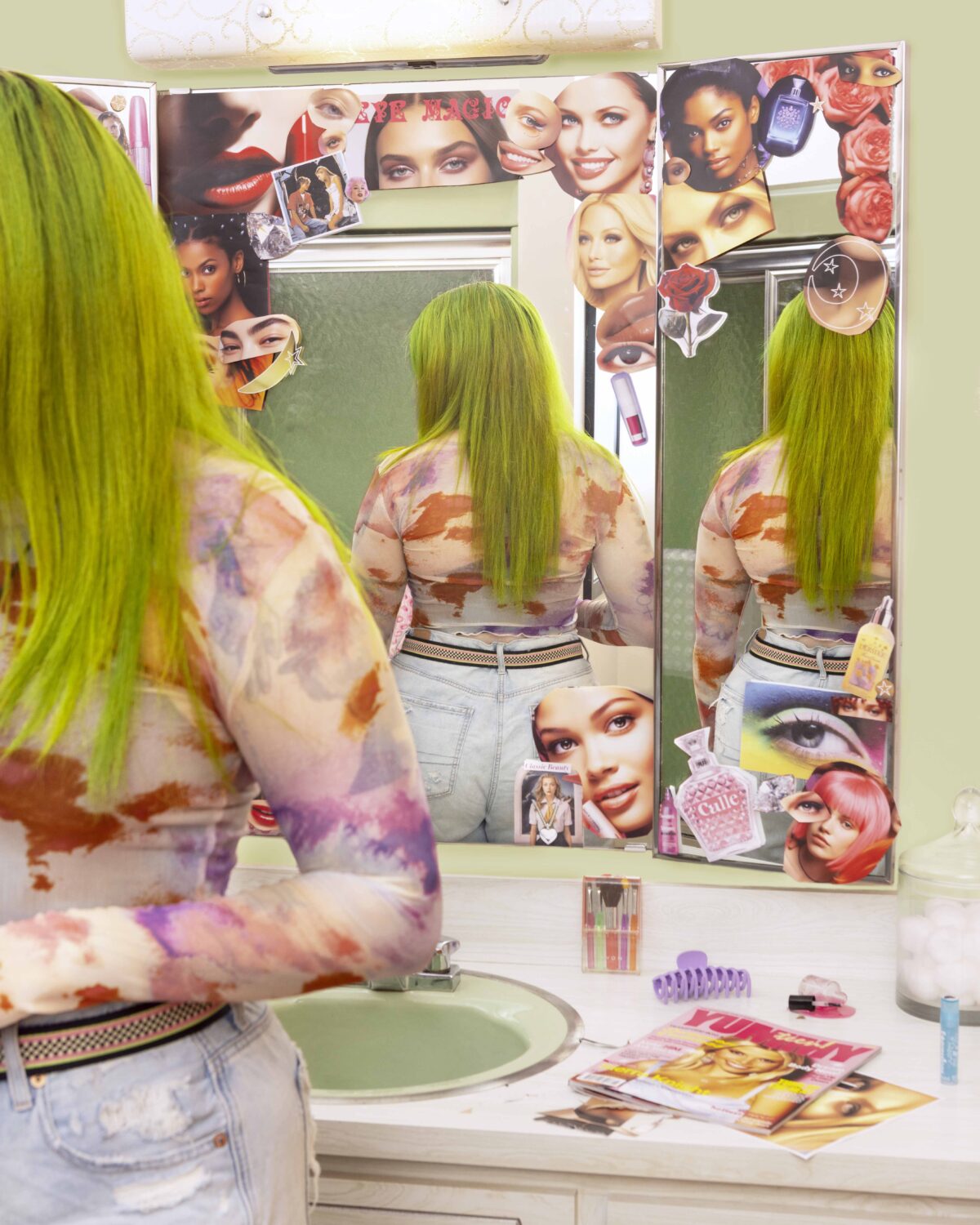Alumni
Baxter St at CCNY has long been a catalyst for innovative creation within the artistic mediums of photography and video practices. Ranging from exhibitions, residency programs, and partnerships, our core mission is to support and activate a vibrant community deeply engaged in the art of lens-based contemporary practices. Take a look at the wide breadth of alumni that are a part of our wonderful and ever-expanding community.
ARTISTS
Elizabeth Renstrom
Project Space (2024)

ARTISTS
Elizabeth Renstrom
Project Space (2024)
Yummy
Elizabeth Renstrom is a Brooklyn-based artist working across photography, video, and installation. Her work creates safe spaces that use identity to examine the effects of nostalgia. Through these spaces, she investigates the way we use images and how we craft our identities in relation to pop culture. Often her work contrasts themes of feminism with the pitfalls of commercialism. Renstrom replicates the bright pop of editorial photography within her personal work, inspired by years working in magazines. This, combined with elaborate sets and a touch of humor, become a tool to interrogate the advice columns magazines sell to young women. Renstrom published her first book, Carnal Knowledge, in 2020 with Prestel UK. Her editorial work has been published in The New Yorker, The New York Times, TIME, Instagram, and Vice, among others.
Yummy is a solo exhibition of works by Elizabeth Renstrom as part of the Mid-Career Initiative. Anchored by the pages and images of three issues of a fictional magazine titled Yummy (Teen Edition)—which Renstrom created in collaboration with designer Elena Foraker and writer Coralie Kraft—the exhibition interrogates our individual and collective relationship with mass media as well as the ways in which media representation shapes identity, for better or for worse.
In this case, Yummy (Teen Edition)’s glossy images and catchy headlines were created entirely through AI—a model trained on a generation’s media consumption and synthesizing an imaginary world set in the realities of the early 2000s. Fashion spreads, photographs of teen heartthrobs, and dogmatic advice columns reflect the value systems promoted through media culture in the early aughts, reproduced perhaps as readily and uncritically by an AI model as they were consumed by young readers at the time. Brightly colored headlines, advertisements for beauty products, diet and exercise tips, and a homogenous array of teen faces fill magazine covers and interior pages in a context that is both dated and yet still reflective of much of today’s media culture. Targeted specifically to young women, these pages recall and reinforce a shaping of ideas about diet culture, desire, and self-presentation, while also underlining the inherently sexist, fatphobic, and racist themes present throughout.
A second component of the exhibition is a group of images that Renstrom created by rephotographing the issues of Yummy (Teen Edition), and situating them within a domestic space. These self-referential works present a look at the feedback loop informing young girls, as they mold their own identities and private spaces and then project them into the world. The exhibition reminds us of all the ways in which “disposable” media can endure—shaping how we see ourselves and warping how we perceive an ideal. Though some of these pressures are timeless, the looming gaze of AI underscores the transformative––and unsettling––new forces guiding how we remember, perceive and imagine.







